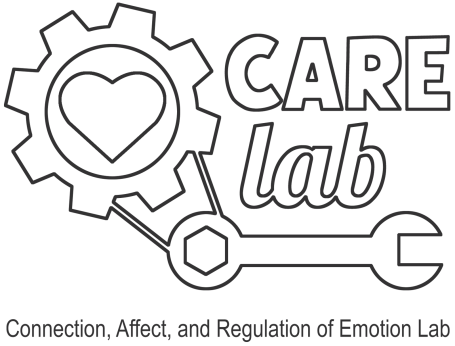* =Equal Contribution; # = Undergraduate or post-bac Mentee
In prep & Under Review
Orvell, A., Schertz, K.E., Baldwin, C., Derosiers, K., Duckworth, A., Jonides, J., Katz, B., Willingham, D., Kross, E. (in preparation). Teaching Self-Control Promotes Positive Shifts in High School Students’ Self-Control Knowledge, Self-Control Behavior, and Academic Achievement.
*Schertz, K.E., *Orvell, A., Chandhok, S., Vickers, B., Moser, J., Ayduk, O., Kross, E. (under review)
Reid, G., Yigit, S., Orvell, A., Foster-Hanson, E., Lei, R.F. (under review). A Developmental Perspective on the Racial Socialization of White Children: Linguistic and Social-Cognitive Considerations.
Dhaliwal, T., Orvell, A., Kross, E., Gelman, S.A. (under review). When does “you” mean “everyone”? A cross-linguistic analysis of generic person markers.
Lopez, R., Kulkarni, P., Goodson, P., Orvell, A., Reis, D., Friese, M., Denny, B. (under review). Emotion regulation strategy use in response to daily stressors among college students: An experience sampling study.
Orvell, A. & Luo, J.# (under revision) Expanding our view of emotion regulation choice: when and why people “outsource” reappraisal.
Published
*Orvell, A., *Simmons, E., Umscheid, V., Elli, G., Gelman, S.A. (2025). From “me” to “we”: How perspective shifts in language can shape children’s judgments about kindness, caring, and inclusivity. Journal of Experimental Psychology: General
*Baldwin, C., *Schertz, K., *Orvell, A., Costello, C., Takahashi, S., Moser, J., Ayduk, O., Kross, E. (2025). Managing emotions in everyday life: Why a toolbox of strategies matters. Emotion.
Niu, M., Gelman, S.A., Jurgens, D., Kross, E., Provost, E.M., Orvell, A. (2025). The persuasive role of generic-you in online interactions. Scientific Reports. 15(1), 1347.
Orvell, A. (2024) Applying social psychology to the self and beyond. In C.A Sanderson & R. Totton (Eds.), Teaching Social Psychology. Elgar.
#Lebrón-Cruz, A. & Orvell, A. (2023). I am what I am: The role of essentialist beliefs and neurodivergent identification on individuals’ self-efficacy. Journal of Experimental Psychology: General. Advance online publication. https://doi.org/10.1037/xge0001457
Orvell, A., Elli, G., Umscheid, V., Simmons, E., Kross, E., & Gelman, S. A. (2022). Learning the rules of the game: The role of generic “you” and “we” in shaping children's interpretations of norms. Child Development, 00, 1–13. https://doi.org/10.1111/cdev.13846
Orvell, A., Gelman, S. A., & Kross, E. (2022). What “you” and “we” say about me: How small shifts in language reveal and empower fundamental shifts in perspective. Social and Personality Psychology Compass, 16(5), e12665. https://doi.org/10.1111/spc3.12665
*Salvador, C.E., *Orvell, A., Kross, E., Gelman, S.A. (2022). How Spanish speakers express norms using generic person markers. Scientific Reports 12(5016). https://doi.org/10.1038/s41598-022-08675-2
*Orvell, A.,*Bruehlman-Senecal, E., Vickers, B., Kross, E., & Ayduk, O. (2022). From laboratory to daily life: Self-distancing training buffers against daily rumination and depression over time. Psychology of Consciousness: Theory, Research, and Practice, advance online publication. 9(1), 68-68. http://dx.doi.org/10.1037/cns0000323
Orvell, A., Vickers, B., Drake, B., Ayduk, O., Moser, J., Verduyn, P., & Kross, E. (2021). Does distanced self-talk facilitate emotion regulation across a range of emotionally intense experiences? Clinical Psychological Science. 9(1), 68-78. https://doi.org/10.1177/2167702620951539
Orvell, A., Kross, E., Gelman, A. (2020) “You” speaks to me: Effects of generic-you in creating resonance between people and ideas. Proceedings of the National Academy of Sciences. 117(49), 31038-31045. https://doi.org/10.1073/pnas.2010939117
Fujita, K., Orvell, A., & Kross, E. (2020). Smarter, not harder: A toolbox approach to enhancing self-control. Policy Insights from Behavioral and Brain Sciences. 7(2), 149- 156. https://doi.org/10.1177/2372732220941242
Orvell, A., Ayduk, O., Moser, J., Gelman, S.A., & Kross, E. (2019). Linguistic shifts: A relatively effortless route to emotion regulation? Current Directions in Psychological Science, 28(6), 567-573. https://doi.org/10.1177/09637214198614
Orvell, A., Kross, E., Gelman, S.A. (2019). “You” and “I” in a foreign land: The persuasive force of generic-you. Journal of Experimental Social Psychology, 85, 103869. https://doi.org/10.1016/j.jesp.2019.103869
Orvell, A., & Kross, E. (2019). How self-talk promotes self-regulation: Implications for coping with emotional pain. In S. Rudert, R. Greifender, & K. Williams (Eds.) Current Directions in Ostracism, Social Exclusion and Rejection Research.
Lee, D., Orvell, A., Briskin, J., Shrapnell, T., Gelman, S., Ayduk, O., Ybarra, O., & Kross, E. (2019).When chatting about negative experiences helps—and when it hurts: Distinguishing adaptive vs. maladaptive social support in computer-mediated communication. Emotion. 20(3), 368–375. https://doi.org/10.1037/emo0000555
Orvell, A., Kross, E., & Gelman, S. A. (2019). Lessons learned: Young children’s use of generic-you to make meaning from negative experiences. Journal of Experimental Psychology: General, 148(1), 184 -191. https://doi.org/10.1037/xge0000445
Orvell, A., Kross, E., & Gelman, S.A. (2018). That’s how you do it: Generic “you” expresses norms in early childhood. Journal of Experimental Child Psychology, 165, 183-195. https://doi.org/10.1016/j.jecp.2017.04.015
Orvell, A., Kross, E., & Gelman, S.A. (2017). How “you” makes meaning. Science, 355(6331), 1299-1302. https://doi.org/10.1126/science.aaj2014
- Featured in Science Podcast and BBC Radio’s All in the Mind.
Featured in The Smithsonian, The Washington Post, The Cut, Psychology - Today, Thrive Global.
Kross, E., *Vickers, B, *Orvell, A., *Gainsburg, I., Jonides, J., Moser, J., & Ayduk, O. (2017) Third-person self-talk reduces Ebola worry and risk perception by enhancing rational thinking. Applied Psychology: Health and Well-being, 9(3), 387-409. https://doi.org/10.1111/aphw.12103
Verduyn, P., Lee, D. S., Park, J., Shablack, H., Orvell, A., Bayer, J., Ybarra, O., Jonides, J., & Kross, E. (2015). Passive Facebook usage undermines affective well-being: Experimental and longitudinal evidence. Journal of Experimental Psychology: General, 144(2), 480- 488. https://doi.org/10.1037/xge0000057
- Commentary: Bohannon, J. (2014). Will Facebook make you sad? Depends how you use it, Science.
- Featured in the New York Times and Good Morning America.
